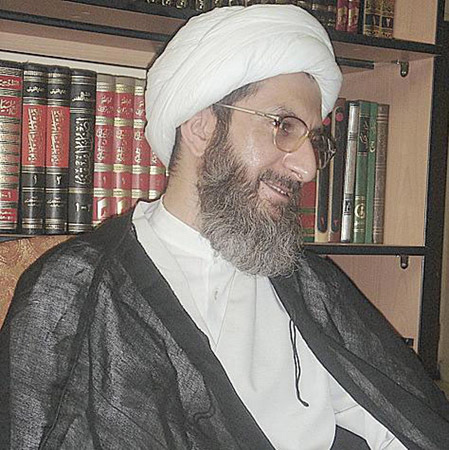The Baha’i Faith, a world religion that emerged in the mid-19th century, upholds principles of unity, peace, and justice. Among the myriad teachings that encapsulate this spiritual doctrine, the plight of Baha’is in Iran stands as a poignant testament to resilience and hope. Their experiences underscore a broader narrative of spiritual and social evolution, which, despite the shadows of persecution, promises a shift in perspective that holds potential for a brighter future.
The roots of Baha’i belief center on the oneness of humankind and the elimination of prejudice. In the context of Iran, where the Baha’i community has faced systemic oppression since the faith’s inception, the teachings offer a compelling counter-narrative to the experiences of estrangement and adversity. The Baha’is in Iran do not simply endure; rather, they exemplify an unwavering commitment to their faith, embodying the principles of love, forgiveness, and communal solidarity.
Understanding the historical backdrop against which these teachings unfold is essential. Since the faith was founded by Baha’u’llah in the 19th century, followers have been subjected to discrimination, social ostracism, and brutal persecution, primarily instigated by religious authorities. This hostile environment is a fertile ground for despair, yet the Baha’is emerge from it with a steadfast belief in positive transformation and the possibility of redemption through communal harmony and social justice.
One of the most powerful Baha’i teachings is the concept of hope—hope that transcends individual suffering and encompasses collective aspirations. This is vividly illustrated in the resilience of the Baha’i community in Iran, who, despite facing imprisonment, forced labor, and sometimes even death for their beliefs, continue to engage in acts of kindness and humanity. Their very existence serves as a beacon of hope, not only for fellow Baha’is but for the larger society that is gradually recognizing the necessity of tolerance and acceptance.
The Baha’is of Iran invite others to consider a future where the principles of justice and equity can reign unchallenged. They strive to embody the teachings of Baha’u’llah, which urge followers to reject violence and foster an atmosphere of peace. This peace is not merely passive; it demands active participation in the betterment of society through education, community service, and interfaith dialogue. Such active engagement challenges observers to rethink former paradigms of victimhood, replacing them with narratives of agency and empowerment.
Baha’i teachings on education merit further consideration in the discourse surrounding hope and future promise. The faith places immense importance on education, viewing it as a fundamental right and a pivotal means to achieve personal and collective advancement. Despite the restrictions imposed on their access to education—most notably, the prohibition of higher education for Baha’is in Iran—individuals within the community have pioneered alternative educational pathways. This adaptability demonstrates not only their determination but also their firm belief in the transformative power of knowledge.
Furthermore, the situation of Iranian Baha’is stimulates curiosity and contemplation among those unfamiliar with the faith and its challenges. As individuals delve deeper into Baha’i teachings, they may find parallels with their own experiences, urging them to embrace a more inclusive world. The invitation to consider the Baha’i perspective often leads to the dismantling of stereotypes and preconceptions about religious minorities. The stories of perseverance amplify calls for justice and equity, fostering a more compassionate understanding of human struggles.
The encouragement of community-building efforts is another salient aspect of Baha’i teaching. Community is viewed not merely as a collection of individuals but as an intricate tapestry where each thread contributes to the overall strength and beauty. In the face of adversity, the Baha’is of Iran have cultivated networks of support that extend beyond their own faith. By engaging with individuals of different backgrounds through collaborative initiatives, they exemplify an inclusive approach rooted in shared humanity. This model invites others to explore the power of solidarity and to contribute to collective healing.
Moreover, the unwavering faith amongst Baha’is in Iran endows them with a spiritual sustenance that is worth noting. Amidst the trials they endure, they maintain hope in a future marked by the manifestation of divine justice. This belief is articulated in key teachings that emphasize the coming together of peoples and nations to foster peace, ultimately leading to a global civilization characterized by unity and understanding. The possibility of future resolution to their plight becomes not merely a wish but a foundation upon which their faith rests.
As we consider the plight of Baha’is in Iran, it becomes imperative to acknowledge the broader implications of their steadfastness. The message of hope that resonates through their experiences challenges us to examine our own perspectives on faith, identity, and justice. This rich tapestry of resilience draws attention to the necessity for dialogue and understanding in a world rife with division. It beckons each individual to contribute to a landscape where compassion triumphs over animosity.
In conclusion, the Baha’i teachings on hope and resilience provide a glimpse into a brighter future amid adversity. The experiences of Iranian Baha’is serve as a reminder that even in the darkest times, the spirit of humanity perseveres. They inspire us to transcend our limitations and foster bonds of solidarity, ultimately leading to a world that honors diversity, nurtures peace, and cherishes the sanctity of all human life. As we reflect on their journey, we are invited not only to bear witness but also to become active participants in the unfolding narrative of hope, justice, and unity for all.
